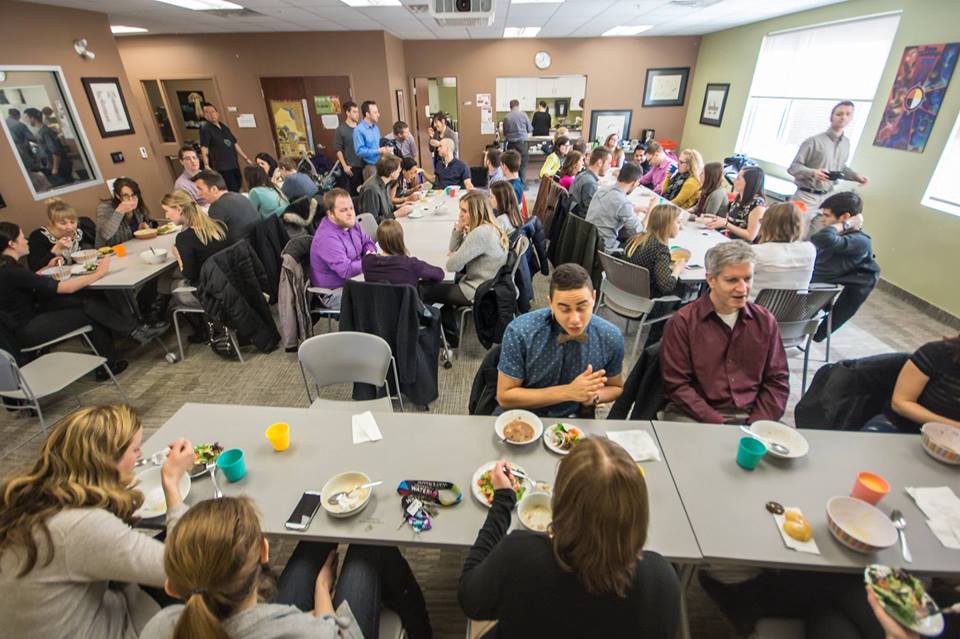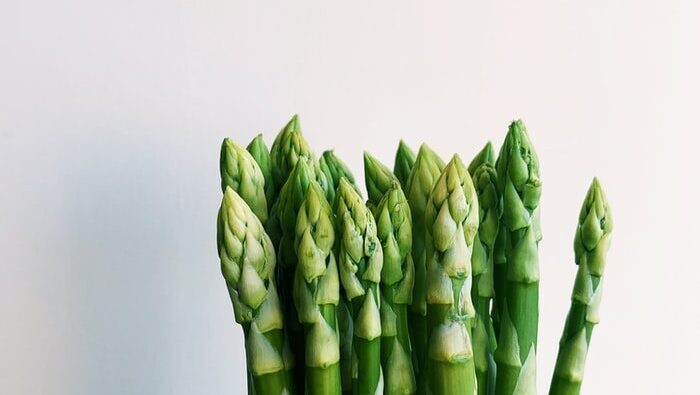3 min read
Written by Beth Timmers

Visit the Indigenous Student Centre at St. Paul’s University College at noon any given Thursday and you’ll be welcomed with a bowl of homemade soup and fry bread. You may sit next to a colleague you haven’t seen in months, your favourite Indigenous author, or your local political official. But be on time; arrive late, and you may not get a seat.
Under the leadership of Cheryl Maksymyk, the Indigenous Student Centre Coordinator, Soup and Bannock Lunch serves up to a hundred students, staff, faculty and community members each week. A rotating assortment of community and campus groups act as hosts, preparing and serving around 50 quarts of soup.
The Evolution of Soup and Bannock Lunch
Soup lunch started with humble beginnings. In 2013, André Moreau, a former University of Waterloo student, started making soup and fry bread for Waterloo’s Indigenous student community. Now a Policy Analyst with the Government of Nunavut, Moreau served a handful of students each week. Enter Shawn Johnston, who joined the Indigenous Student Centre as the Events Coordinator from Wilfred Laurier University. Johnston suggested they invite campus and community groups to cook, and then he started networking.
Johnston’s networking attracted considerable interest. Soon, campus groups including the Faculty Association of the University of Waterloo and the Ecology Lab signed up to host. Community groups representing the AIDS Committee of Cambridge, Kitchener Waterloo and Area (ACCKWA) and the Kitchener-Waterloo Art Gallery (KWAG) shared their best recipes. Select local, regional and federal politicians now make the lunch a priority when they visit campus.
Guests include an impressive lineup of distinguished Indigenous authors, artists and scholars. Notably, author Thomas King, writer and editor Kateri Akiwenzie-Damm, playwright, author and musician Tomson Highway, Haudenosaunee historian Dr. Susan Hill, and the Canada Research Chair in Indigenous Literature and Expressive Culture, Dr. Daniel Heath Justice. These special visitors enjoy Soup and Bannock Lunch when they visit campus for a lecture or event.
Feasting as Engagement
Amy Smoke, the Centre’s former Events Coordinator says, “We feast everything”; every season, every milestone warrants a gathering over food. Feasting is about much more than the food itself: it’s about engagement. This comes in many forms, such as friendly conversations at shared tables, or networking between campus and community representatives. Smoke and Maksymyk note how important it is for the University of Waterloo’s growing Indigenous student population to engage with renowned Indigenous guests.
The inclusive atmosphere is a space to spread awareness and build relationships. Staff share upcoming Indigenous Student Centre-related events, and hosts can discuss their community and campus work. KWAG’s hosting duties led to an invitation for Centre staff to open exhibits by Kent Monkman and Lisa Meyers. After staff from Conrad Grebel University College attended, they reciprocated with an invitation to dinner, and the chance to participate in Mennonite feasting traditions. Other campus groups, after hosting, reach out during times of grief and crisis facing Indigenous communities. Groups dropped off food, and importantly, cleaned up afterwards in a useful gesture of allyship. From its modest start, Soup and Bannock Lunch has grown into an inclusive, meaningful opportunity to engage through the ritual of eating, together.
